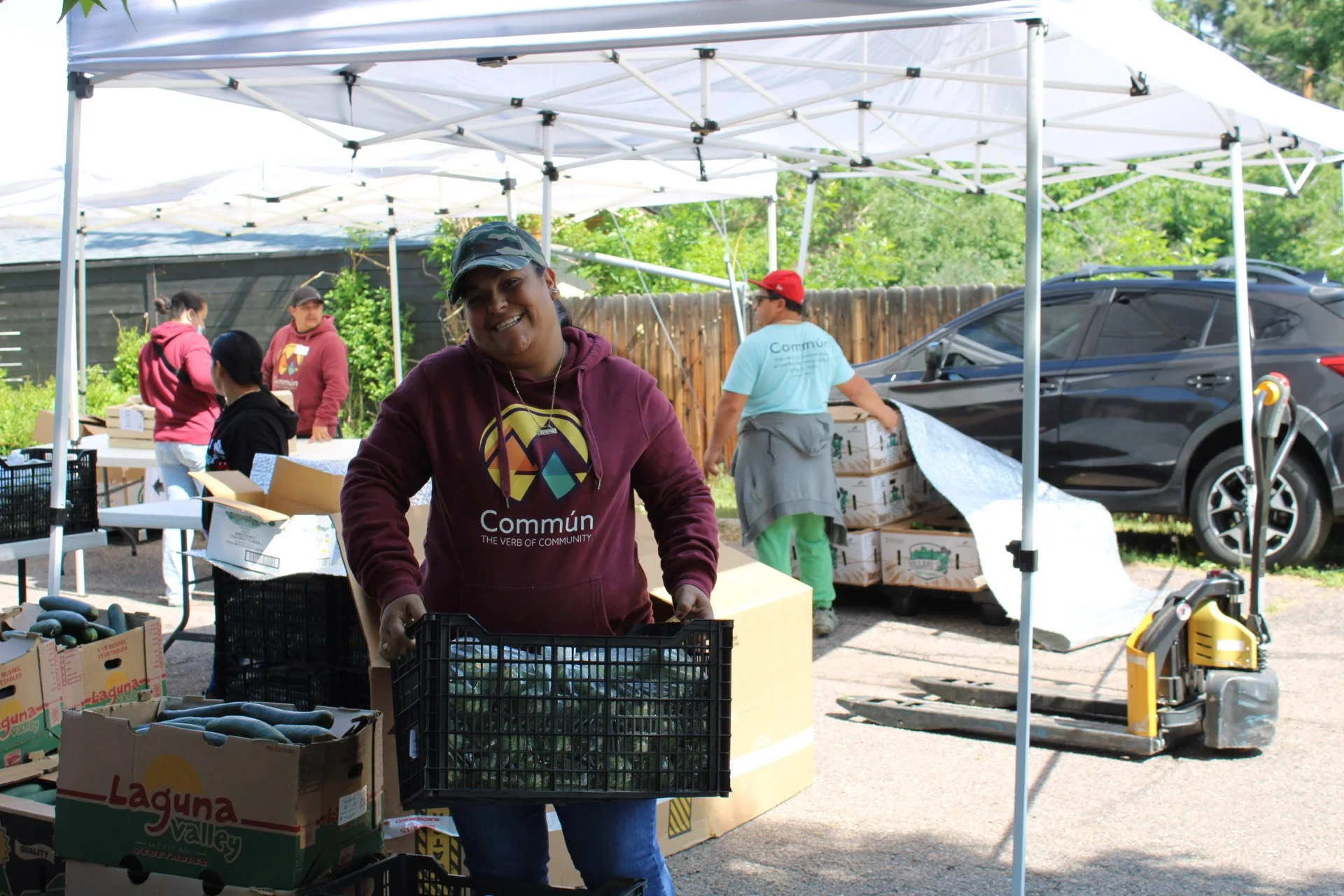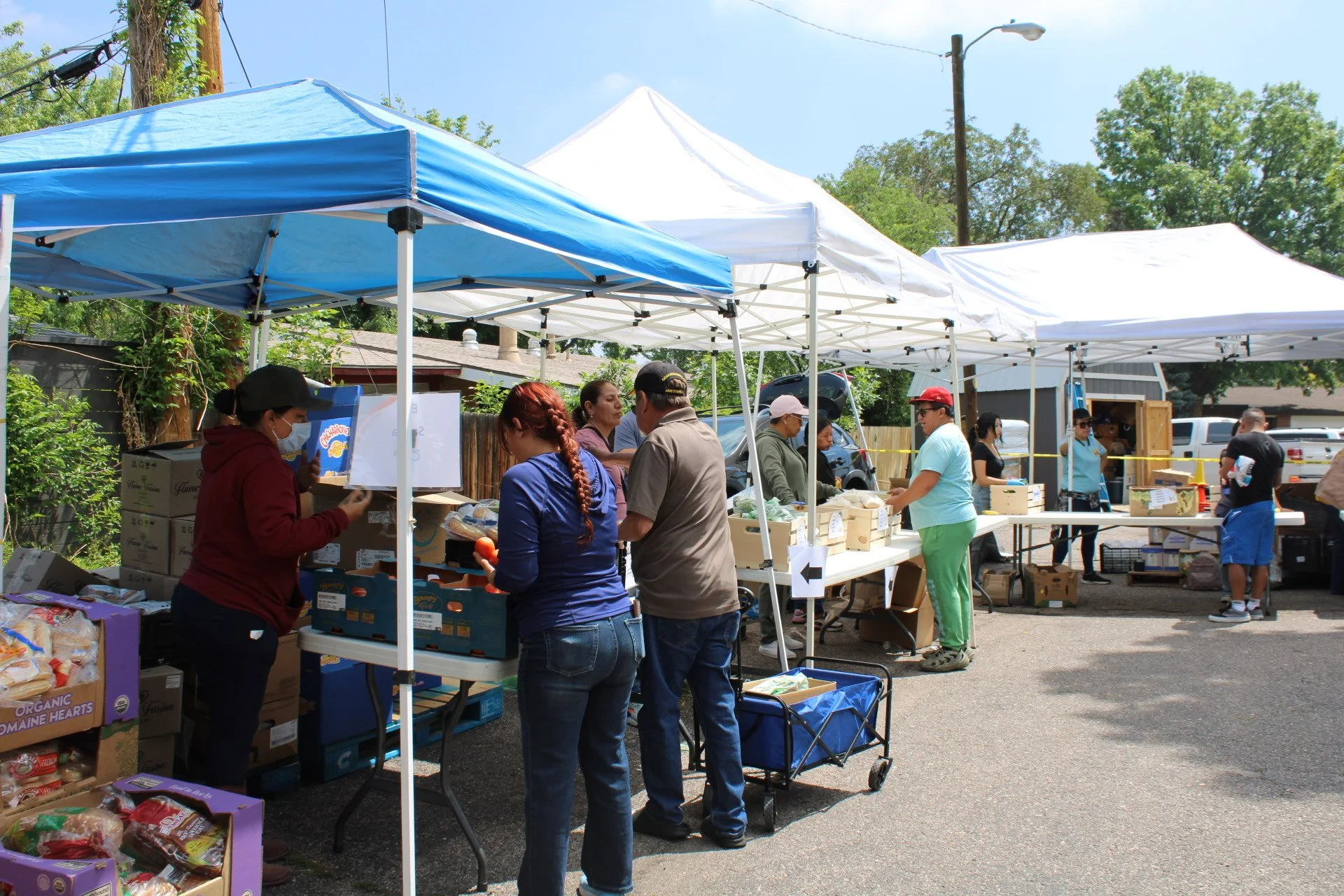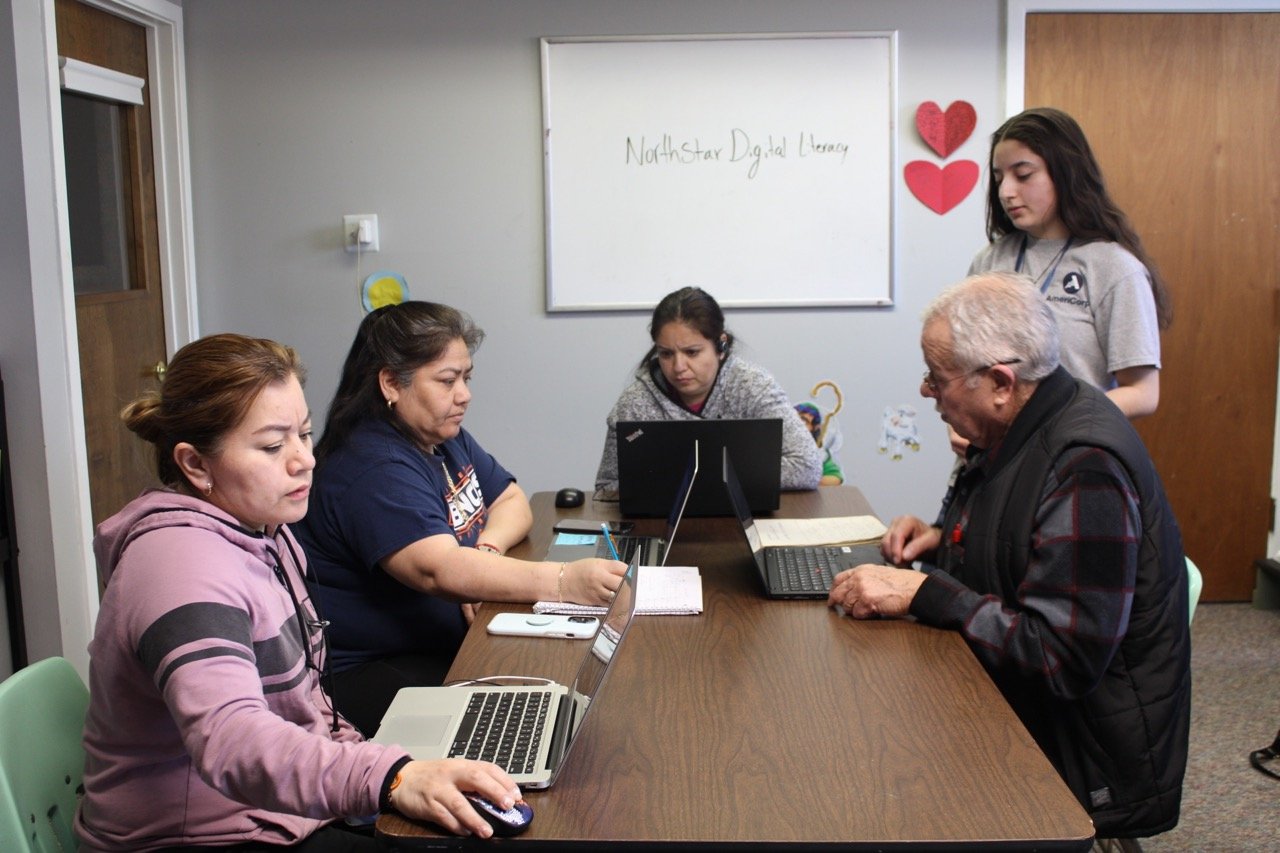Commún Grows Food Share into a Choice-Based Community Market
Since its launch in March 2020, Commún’s food share has been a cornerstone of the organization’s programming—serving as its earliest and most visible form of community-led support. For five years, the weekly drive-through distribution has offered fresh, local, and organic foods to hundreds of households. The program is carried out by dozens of Southwest Denver residents who are directly impacted by food insecurity, and directly involved in shaping and delivering the program.
Now, Commún is taking the next step in evolving the Food Security program into a more interactive and empowering model that reflects its broader community-centered mission.
In response to community input, Commún is transitioning its food distribution from a drive-through format to a walk-up, market-style experience. This change marks the first phase of a multi-stage plan to ultimately establish a fully functioning community grocery market. In this new format, participants will be able to select their own food, offering a deeper sense of dignity, choice, and cultural responsiveness.
“Across all of the focus groups we’ve held with community members, the number one request was choice,” says Commún’s Food Security Program Manager, Laura Engelman. “People want to be able to pick what they need, rather than receive items they might not use or end up wasting.”
Over the past five years, Commún has held paid community meetings with long-time volunteers, recent participants, and community members who access food through the organization in different ways, in order to involve community members in decision making. This year’s multilingual focus groups —including sessions in Arabic, Spanish, Turkish, and English— showed, for the first time, a desire for a change in format. The feedback consistently highlighted the importance of continuing to offer fresh, locally grown staples while introducing opportunities for more self-determination.
While the first phase of the transition will maintain a fully free model, future stages may incorporate subsidized sales, token-based purchasing, and participation from community vendors. Commún envisions a hybrid food system where donated and low-cost items are available side by side, and where local producers—including gardeners and food producers from Commún’s own programs—can sell their goods.
Future Vision
This shift is also part of a broader strategy to increase sustainability. Over the past five years, Commún has relied heavily on grant funding and food donations from partners such as Food Bank of the Rockies. As those resources fluctuate, the organization is planning for a future less dependent on external funding.
“We want to build a resilient, community-sustained food system that supports local producers and offers high-quality food at an accessible cost,” Engelman explains. “That includes the ability to pay community members who grow food, and to subsidize things like eggs or dairy while still offering much for free.”
The move also reflects Commún’s transformation into a full-fledged community center. Where once the food share was the sole program, the space now offers mental health services, digital literacy classes, ear acupuncture, and case navigation support. Shifting to a walk-up model brings food share participants into closer contact with the wider range of services and relationships forming at Commún.
Digital Literacy Classes
Ear Acupuncture
Case Navigation Support
Ultimately, the shift is about building belonging. By creating space for more choice, conversation, and connection around food, Commún hopes to foster deeper cross-cultural community, and a model of equity that goes far beyond what’s in everyone’s grocery cart.









